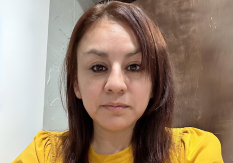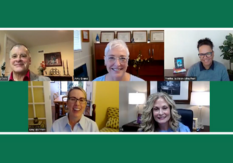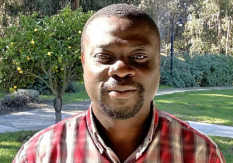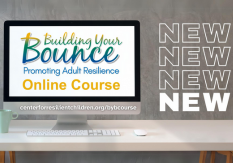Developmental Disabilities Awareness Month: Breaking down barriersMarch is Developmental Disabilities Awareness Month, a time to recognize the many contributions made by youth and adults with intellectual and developmental disabilities, and raise awareness of the challenges that remain for people with developmental disabilities. The Centers for Disease Control and Prevention (CDC) reports that about one in six children in the U.S., between the ages of 3 and 17, have one or more developmental disabilities (e.g., autism spectrum disorders, intellectual disabilities, learning disorders). According to a recent study, the percentage of children in this age group diagnosed with developmental disabilities increased from 16.2 percent in 2009 to 17.8 percent in 2017. “At Devereux Advanced Behavioral Health, we strongly believe individuals with intellectual and developmental disabilities can make a meaningful and positive difference in their homes, schools and communities, and should be given the same opportunities for inclusion, access and equality as those without disabilities,” said Devereux Vice President of Operations – Adult Services Stephen Bruce, M.Ed., BCBA. “People with developmental disabilities are an integral part of our society – they have hopes and dreams like everyone else. These individuals deserve our respect, acceptance and assistance in achieving their goals and leading fulfilling lives.” Common barriers to accessibilityThe CDC states that youth and adults with developmental disabilities often face barriers that can make it challenging to function on a daily basis. Common barriers include:
“In order to help individuals with developmental disabilities reach their full and unique potential, we need to break down these barriers,” Bruce explained. “We can do this by making an effort to understand the needs of these individuals; allowing youth and adults the opportunity to make their own decisions and choices based on their preferences; and providing opportunities for individuals to work, volunteer or participate in social groups and activities.” Increasing awareness; promoting inclusionEach year, the National Association of Councils on Developmental Disabilities (NACDD) partners with the Association for University Centers on Disabilities (AUCD) and the National Disabilities Rights Network (NDRN) to launch a campaign to showcase the work being done to celebrate and improve the lives of individuals with developmental disabilities. This year, NACDD is encouraging the public to share stories on social media throughout the month of March – using the Twitter hashtag #DDAwareness20. In addition, March 4, 2020, is national “Spread the Word Day,” which highlights the importance of inclusion. Schools, workplaces and communities across the country hold events on Spread the Word Day and throughout the year to demonstrate their commitment to creating socially inclusive places for youth and adults with developmental disabilities to learn, work and live. Devereux’s intellectual and developmental disabilities servicesAs part of Devereux’s continuum of care, the organization provides innovative programs and services for children, adolescents and adults with developmental disabilities, which vary by state, and include:
Learn more about Devereux Advanced Behavioral Health.
Latest News
|
|||||||||||||
- Home
- About Us
- Advanced Philosophy of Care
- Mission, Values and Service
- Our Commitment to Safety
- Our History
- Senior Leadership Team
- Devereux Board of Trustees
- Annual Reports
- Devereux in the News
- Diversity, Equity, Inclusion and Belonging
- Recognizing Our Employees
- Celebrating Our Devereux Families
- Sharing Messages of Hope
- Who We Help
- Locations
- Supporting Devereux
- Training and Consulting
- Careers














